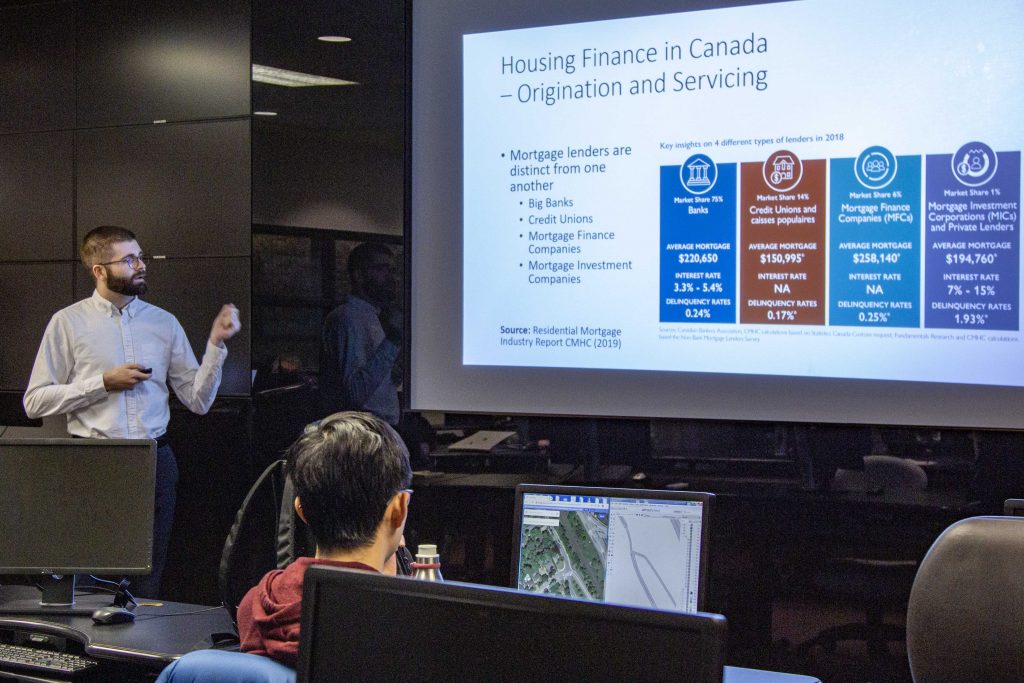
David Islip gave a presentation on “Housing finance, land use, and transportation networks” to provide a basis for understanding Canada’s housing system and how it impacts land use. Islip is a graduate student in the Mechanical and Industrial Engineering department at University of Toronto. He currently works as a Qualitative Risk Analyst at Canada Guarantee Mortgage Insurance Company. The seminar was held February 21 in the ITS Lab as a part of UT-ITE Friday Seminar Series.
Islip started off his presentation by providing a brief summary of housing finance in Canada. He spoke about various perspectives that have altered the financing schemes in Canada. The presentation examined the dynamics of Canadian housing finance system. Islip’s goal was to draw the audience’s attention to effect of such dynamics on land use patterns.

He suggested that considering financial flows could be useful for various land-use model researchers. He suggested three common land-use models in which financialization may have profound impacts, namely:
- Residential Mobility Model: the decision to become active
- Relocation Model: evaluation and (re) location decision
- Asking Price Model: how much should the property be sold for
Another example Islip gave was Professor Habib’s work on microsimulation residential modelling. He spoke about the negative correlation of change in mortgage interest rate and mobility decisions.
Islip ended his presentation with an interesting note: that the increased financialization of housing will have impacts on land-use in ways that we have not yet experienced.

Abstract: It is recognized that the decision-making processes of households play a fundamental role in land-use planning. Furthermore, in the case of Canada, the housing finance system and its political economy have a significant influence on household decision-making. This session will provide a basis for understanding Canada’s housing system and how it impacts land use. An overview of Canada’s housing system will be provided. In particular, housing policy will be understood through the lens of micro-simulation.

Bio: David Islip is a PhD student in Industrial Engineering at the University of Toronto under the supervision of Professor Roy H. Kwon. As a part of his research, David also works at Canada Guaranty Mortgage Insurance Company as a Quantitative Risk Analyst performing strategy and risk analytics. His research interests are data-driven decision making and risk management. He holds a BASc in the Engineering Science Infrastructure Option from the University of Toronto.
Presented by University of Toronto ITE Student Chapter, UT-ITE.
